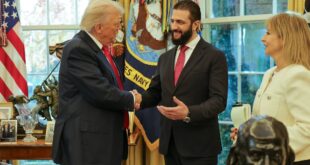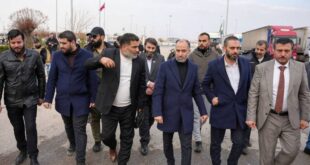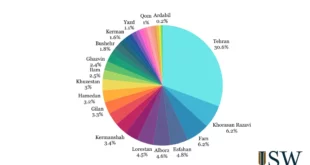A suicide bomber struck a funeral in Baghdad on Tuesday, killing at least seven people as militants show increasing defiance to a major security operation in the capital.The attacker, wearing a belt packed with explosives, followed a funeral procession into a tent before detonating the blast in a mostly Shiite district of eastern Baghdad, police said. At least 15 people were injured.
In other bloodshed across Baghdad, a car bomb and a suicide attacker killed at least 11 people. About 12 miles outside the capital, a truck carrying chlorine gas ran over a roadside bomb. Two people died in the explosion and nearly 150 exposed to the fumes were treated for injuries, said Brig. Gen. Qassim Moussawi, a military spokesman.
More than 100 people have been killed in the Baghdad area since Sunday in a direct challenge to efforts by U.S. and Iraqi forces to restore some authority on the streets and give the embattled government some breathing room.
The first attacks came during the busy morning rush for goods and fuel. A car rigged with explosives tore through a line of cars at a gas station in the Sadiyah district in southwestern Baghdad. Police said at least six people were killed and 14 injured in the neighborhood, which is mixed between the majority Shiites and Sunnis whose militant factions are blamed for many of the recent bombings and attacks.
Later, a suicide attacker drove a bomb-laden car into a vegetable market near a Shiite enclave in southern Baghdad. At least five people were killed and seven injured, police said. The same market in the mostly Sunni Dora district was targeted last month by three car bombs that killed 10 people.
On Monday, insurgents staged a bold daylight assault against a U.S. combat post north of Baghdad, killing two soldiers and injuring 17. The U.S. military called it a “coordinated attack” – which began with a suicide car bombing and then gunfire on soldiers pinned down in a former Iraqi police station, where fuel storage tanks were set ablaze by the blast.
The head-on attack in Tarmiyah, about 30 miles north of Baghdad, was notable for both its tactics and target. Sunni insurgents have mostly used hit-and-run ambushes, roadside bombs or mortars on U.S. troops and stayed away from direct assaults on fortified military compounds to avoid U.S. firepower.
It also appeared to fit a pattern emerging among the suspected Sunni militants: trying to hit U.S. forces harder outside the capital rather than confront them on the streets during a massive American-led security operation.
Mohammed al-Askari, spokesman for Iraq’s Defense Ministry, blamed the attack on a cell of al-Qaida in Iraq, which has claimed responsibility for many high-profile strikes. “It’s their work,” he said.
Altogether, nine U.S. service members have been reported killed since the beginning of the weekend, six of them on Monday.
In Baghdad, Prime Minister Nouri al-Makiki moved quickly to try to defuse a potentially explosive scandal after a Sunni woman claimed she was raped by three officers of the Shiite-dominated police.
But the government’s response – siding with the officers and trying to discredit the allegations – threatened to bring even more backlash.
A statement by al-Makiki’s office accused “certain parties” – presumably Sunni politicians – of fabricating the claims in an attempt to undermine security forces during the ongoing Baghdad security operation, which began last week.
The 20-year-old married woman said she was assaulted after police commandos took her into custody Sunday in the western Baghdad neighborhood of Amil, accusing her of helping insurgents. She was taken to a police garrison and raped, she said.
“It has been shown after medical examinations that the woman had not been subjected to any sexual attack whatsoever and that there are three outstanding arrest warrants against her issued by security agencies,” the government statement said. It added: “The prime minister has ordered that the officers accused be rewarded.”
There was no comment from Sunni officials, who expressed outrage over the alleged rape and demanded swift punishment. Sunnis blame the police for many of the death squad killings of Sunnis over the past two years.
In a Baghdad courtroom, six officials from Saddam Hussein’s regime pleaded innocent of crimes against humanity for a crackdown on Kurds in the 1980s.
The defendants include Ali Hassan al-Majid, also known as “Chemical Ali,” for allegedly ordering poison gas attacks during the campaign, code-named Operation Anfal, which killed an estimated 100,000 Kurds.
The trial began last year with each defendant rejecting the general allegations. The special tribunal now delivered specific charges to end the investigative phase of the proceedings. If convicted, they could face death sentences.
Saddam was a defendant in the Anfal trial but was sentenced to death after his conviction for the killing of 148 Shiite Muslims after a 1982 assassination attempt. He was hanged Dec. 30.
 Eurasia Press & News
Eurasia Press & News


